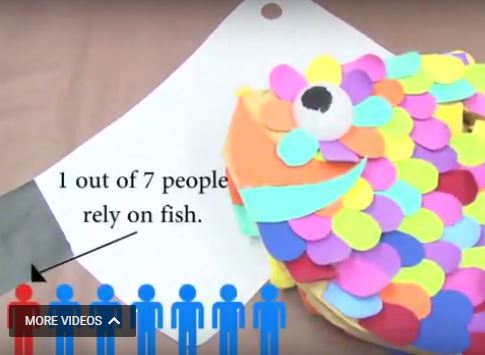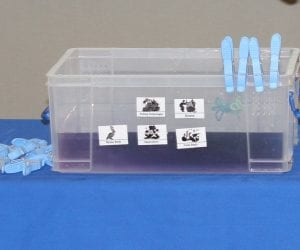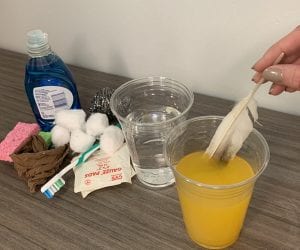There are currently 228,000 identified species calling the oceans home, but surely many more exist. Some that have yet to be named, and others that have yet to be discovered. But the world’s oceans are more than just a habitat and humans rely on them for transportation, resources, and various ecosystem services.

Seven student-made videos, created for the World of 7 Billion video contest, dive into some of today’s most pressing issues surrounding ocean health and offer solutions for positive change.
Plastic Waste – It Can be Trapped, or Eaten!
Every year, 3% of plastic waste ends up in the ocean. While it’s a fairly small percentage, it means 22,000 tons of plastic enter global waters every single day. Four students covered the issue of plastic pollution in their videos, ranging from cosmetic microbeads that make it through filtration systems to direct trash dumping from land and ships. And while it’s a very common issue, the students’ unique ideas for solutions were inspiring. Videos “Plastic Soup” and “Our Solution to Pollution” both speak of new studies around a bacteria – ideonella sakaiensis – that eats PET plastics (typically used for water and soda bottles). Ethan Xiong, in his video “What’s to Lose?” thinks that floating barriers could be used to trap plastic so it can be collected and recycled into new products.
Over-Fishing Threatens Fish and Human Populations
Coastal communities have always relied on seafood for protein and in our current connected world, people thousands of miles from the coast consume food caught in oceans daily. As it stands today, 85% of global fisheries have been pushed to their limits. Pete Kim states that “the demand for seafood is directly proportional to the rapidly growing human population.” Yet, he does not argue that we need to fish more, rather that we need to fish more efficiently. In the long term, Pete wants to see governments control by-catch and create marine sanctuaries. In the short term, he urges seafood consumers to follow the “good fish guide” and demand sustainably caught fish.
How Humans are Changing the Oceans
Videos by Katie Krofta and Claire Knutsen both explore how human actions are changing the oceans, and not in a positive way. As the oceans become more acidic, Katie explains that the water is “unable to absorb enough carbon to regulate global temperature and weather patterns.” Claire’s video looks at how increasing water temperature is cause coral bleaching and as a result, killing the coral that shelters 25% of marine species. Both of these changes – ocean acidification and increasing water temperature – are directly related to human actions. Cutting back on our individual energy use would help, as would stopping run-off pollution.
The Top 7 Videos Linking Population to Ocean Health
- Fishes Are Being Thrown Away by Pete Kim, Jason Tark, and Henry Ko
- I Think This World is Worth Saving by Katie Krofta
- Our Solution to Pollution by Lumeria So, Zorina Holod, and Grace Kelley
- Plastic Soup by Maya Peters-Greno and Maya Redden
- Too Late? by Nesha Vuriti
- What’s to Lose? by Ethan Xiong
- You Can be the Change by Claire Knutsen, Julia Loritz, and Tae Ellisen




